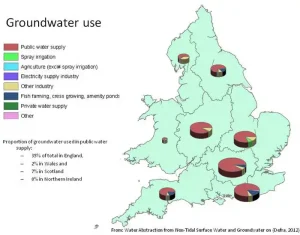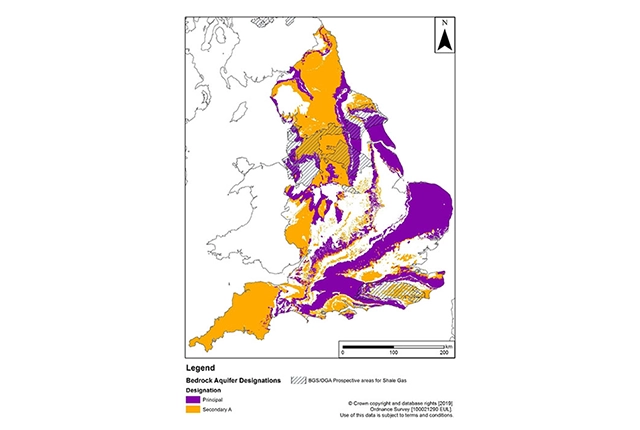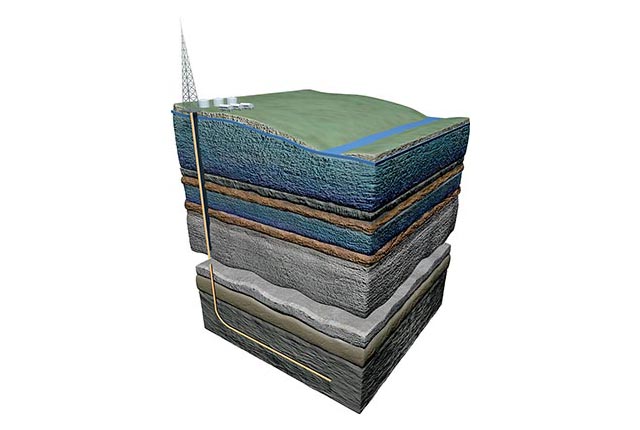BGS undertakes research to provide the information needed to understand potential effects on groundwater from shale gas exploitation.
- BGS worked with the Environment Agency to investigate whether any evidence exists about the effects of abandoned hydrocarbon wells on groundwater quality in England
- The National Baseline Methane Survey of UK groundwaters helped assess future changes in methane concentrations
- Aquifers and shales is a set of national-scale maps showing the spatial relationships between principal aquifers and major shale units in England and Wales
- The 3D groundwater vulnerability project developed an approach to assess the vulnerability of groundwater to contamination from deep subsurface activities
This work has provided underpinning information that will be of use to policymakers, regulators and decision makers.
Groundwater: a precious resource
Groundwater is a vital source of fresh water in the UK. It provides around 27 per cent of public water supply on average, but this amount varies in different regions. For example, in south-east England, nearly 90 per cent of public supply coems from groundwater.
In addition to public supply, groundwater has a number of other uses including bottled water, agriculture and irrigation, and food and drink production. Figure 1 shows the relative proportions of groundwater used in the UK, and how it is used.

Groundwater is also vital for maintaining river flow, especially during dry periods, so it is essential for maintaining ecosystem health.


Dr Rob Ward, speaking in 2013, discusses the abstraction and consumption of water in the UK and relates that to how much may be used in hydraulic fracturing for shale gas.
Environmental concerns
There have been concerns expressed about the potential effects of shale gas extraction on groundwater, with reports in the US claiming that contamination of drinking water has occurred.
Shale gas is natural gas trapped in low-permeability shales. The gas is held in pore spaces within the rock, or adsorbed onto minerals and organic material in the shale. New technology for gas production from shale formations, horizontal drilling and hydraulic fracturing, was originally developed in the USA and has led to the rapid exploration of shale formations worldwide.
The UK has abundant shales at depth that have been the focus of research into:
- characterisation
- resource evaluation
- exploitation risk
BGS has carried out research projects in a number of these areas. Part of this research considered some of the environmental concerns and, in particular, the potential effects on groundwater. We published a report in 2012 on the potential groundwater impact from exploitation of shale gas in the UK.
More questions?
Visit our shale gas pages to find out more about shale gas and groundwater.




